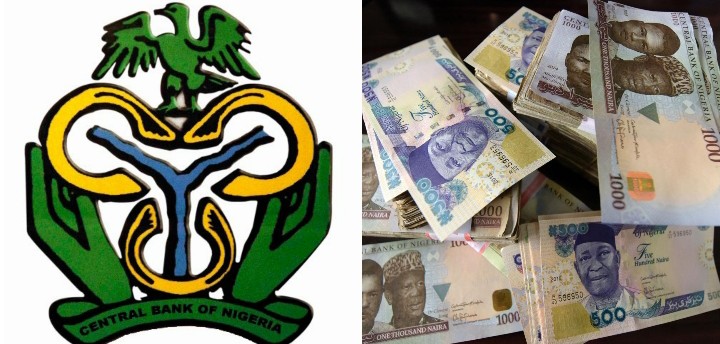The Central Bank of Nigeria (CBN) has fully complied with the Supreme Court ruling ordering it to restore old naira notes to circulation but Guaranty Trust Bank (GTBank) and other banks have limited over-the-counter withdrawals to just N10,000.
Our correspondent, who visited many banks in Lagos today to verify the level of compliance with the CBN-mandated acceptance and disbursement, could not access the banking halls in many locations as a result of long queues inside and outside the banks.
Join our WhatsApp ChannelREAD ALSO: Why Naira Scarcity, Queues – CBN’s Emefiele Briefs Diplomatic Community
At GTBank on Airport Road, bank officials insisted that customers could not withdraw above N10,000, saying they were acting on the instruction of the CBN. “The limit is N10,000 and its the limit for daily withdrawal, according to the CBN,” one of the bank staff said.
She also said that customers could not deposit the old notes without registering the notes on the CBN portal.
This suggests that although the CBN has complied with the directive of the Supreme Court by ordering banks to accept and issue old N500 and N1000 notes, it has also tightened its noose on those who might have planned to abuse the Naira redesign policy.
Customers at GTBank were seen making withdrawal of old notes on Wednesday. “We do not have the new notes, a female banker said when asked why the branch was not giving out new Naira notes.
In a related development, the apex bank released new measures to check abuse by POS operators with regards to mobile banking. It said agents to go beyond specified threshold in rendering their services. In an Exposure Draft of the Regulatory Framework for Agent Banking in Nigeria, the CBN barred agents from using merchants’ Point of Sale (PoS) terminals.
According to the central bank, agents should avoid using the wrong option for transactions such as the use of the purchase option on PoS Terminals for cash-in and cash-out transactions.
Also, the financial regulator restricted the PoS agents from performing foreign currency transactions, opening accounts or disbursing loans to their customers.
READ ALSO: Signature Bank Falls: U.S Records Third Largest Bank Failure In History
“An agent shall not accept deposit or allow withdrawal above an amount which shall be prescribed, from time to time by the bank.
“Use the wrong option for transactions e.g agents shall not use the purchase option PoS Terminals for cash in and cash out transactions,” the circular signed by Musa I. Jimoh, Director, Payments System Management Department reads.
Also listed among services mobile banking agents are barred from offering are “Open accounts, grant loans or carry out any appraisal function for purposes of opening an account or granting of a loan or any other facility except as may be permitted by any other written law to which the agent is subject.
“Undertake cheque deposit and encashment of cheques. Accept deposit or allow withdrawal above an amount which shall be prescribed, from time to time, by the bank.
“The agent bank employee also should not be a staff of financial institution and also provide cash advances,” the central bank stated.
The CBN adopted the use of PoS agents to move banking closer to underserved areas across Nigeria and deepen financial inclusion.
PoS agents have saturated the country, with many Nigerians now patronising them for cash withdrawals, cash transfers and certain bill payments, instead of visiting commercial banks.
This prompted the need to reiterate the activities of the mobile banking agents, “This has necessitated the review of agent banking regulations to streamline activities in agent banking while ensuring that appropriate risk mitigation measures are taken by stakeholders”, it said.
















Follow Us